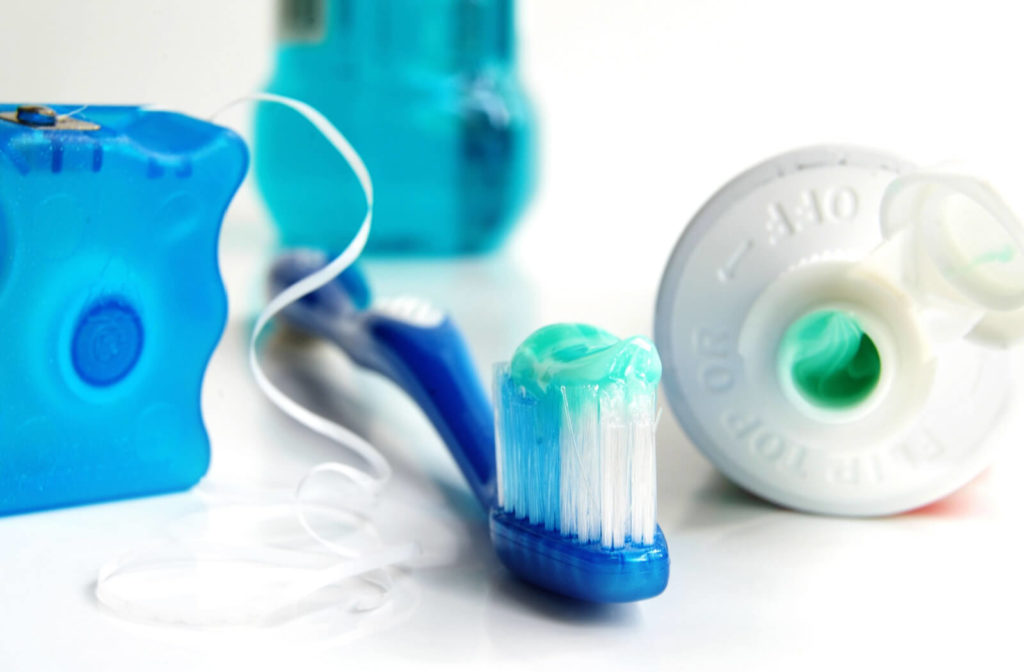Tooth decay caused by bacteria that exists naturally in plaque on your teeth. These bacteria produce acid that can erode the tooth enamel, the hardest tissue in your body. Tooth decay is common in both children and adults.
If plaque is not removed with regular brushing, flossing, and dental cleaning, it can lead to tooth decay and cavities. Fortunately, tooth decay can be reversed in some cases if caught in the earliest stages.
Adult and children’s dental exams can identify and help treat tooth decay before it worsens. We discuss the different stages of tooth decay and how dental care can help reverse it.
What Is Tooth Decay?
Dental plaque is a sticky film that covers a tooth’s surface. Even though your enamel provides a protective coating from bacteria, these bacteria feed on sugars from foods you eat and release acids.
Plaque is a mix of acids, bacteria, and sugars that erode or eat away at your enamel. Without regular oral hygiene, plaque can grow in between and on the surface of your teeth. You know that fuzzy feeling on your teeth when you run your tongue along them? That’s plaque.
Plaque can harden into tartar over time, which can’t be removed by brushing. If left untreated, plaque and tartar buildup can break down the enamel further and reach deeper into your teeth, causing cavities.
Poor dental hygiene isn’t the only cause of tooth decay. Other causes include:
- Frequent snacking
- Diet high in sugary foods
- Diet high in carbohydrates, like bread
- Dry mouth from medication
- Acid reflux
- Insufficient fluoride
- Smoking
- Eating disorders like anorexia and bulimia
Symptoms of Tooth Decay
Typically, there are no signs or symptoms of early tooth decay. However, as tooth decay advances, you can experience the following symptoms:
- Toothache
- Tooth sensitivity to hot, cold, or sugar
- Spots on your teeth that are grey, yellow, brown, or white
- Holes in your teeth that you can see or feel
- Swelling around your teeth caused by infection
- Bad breath
- Unusual taste in your mouth
Stages of Tooth Decay
Before a cavity develops, there are 5 stages of tooth decay. In the initial stage, which only affects the enamel, tooth decay can be reversed.
Below are the 5 stages of tooth decay in more detail.
- Demineralization
Enamel—the outer covering of your teeth—is mostly made of minerals. When the enamel is exposed to acids produced by plaque bacteria, it begins losing these minerals.
Mineral loss may show as a white spot on your teeth and may indicate an initial sign of tooth decay. Seeing your hygienist at this point can ensure removing any plaque and tartar buildup you missed with brushing and prevent the tooth decay progression.
- Enamel Decay
If tooth decay continues, the enamel can break down further. Signs of the second stage can include:
- The white spot on your tooth can become dark or turn a brownish colour.
- Small holes or cavities begin forming in your teeth, which need to be filled by your dentist.
- Dentin Decay
Dentin is the soft tissue under the enamel and is sensitive to acid damage. Because it’s softer than enamel, tooth decay can advance more quickly once it reaches the dentin.
Dentin is also connected to the nerves in the tooth via tubes. When tooth decay reaches the dentin, you may experience pain and sensitivity to hot or cold food and drink.
- Pulp Decay
The pulp is the innermost part of your tooth. It contains nerves and blood vessels that provide sensation and keep your teeth healthy. In this stage of decay, the cavity reaches the pulp and can cause irritation and inflammation. Because the tooth can’t expand to accommodate the swelling, it results in pressure and can lead to pain.
- Abscess
Infection and inflammation can lead to bacteria inside the cavity spreading beneath the pulp, forming a pocket of pus or an abscess. In most cases, abscesses are extremely painful. This pain may radiate into the jaw.
Abscesses should be treated immediately to prevent infection from spreading into the jawbone or areas of the head and neck. Treatment at this stage could involve a root canal or tooth extraction.
Treatment for Tooth Decay
You can reverse the early stages of tooth decay before permanent damage occurs. One way is with a fluoride treatment at your dentist’s office, which is applied as a gel or varnish. You can also use high-fluoride toothpaste or a fluoride mouth rinse to help rebuild the minerals in your enamel.

Preventing Tooth Decay
Prevention can keep tooth decay away and stop further damage to your teeth. Here are some measures you can take to prevent tooth decay:
- Good oral hygiene: brushing twice daily and flossing daily
- Regular dental exams and cleanings
- Use fluoride toothpaste
- Limit sugary foods and drinks
- Limit snacking
- Dental sealants
Heal & Stop Tooth Decay for Healthy Teeth
The dentists at Markham Dental Smiles can help identify and address the early stages of tooth decay before they worsen. Book an appointment if you experience tooth pain or sensitivity or have concerns about your dental hygiene.







